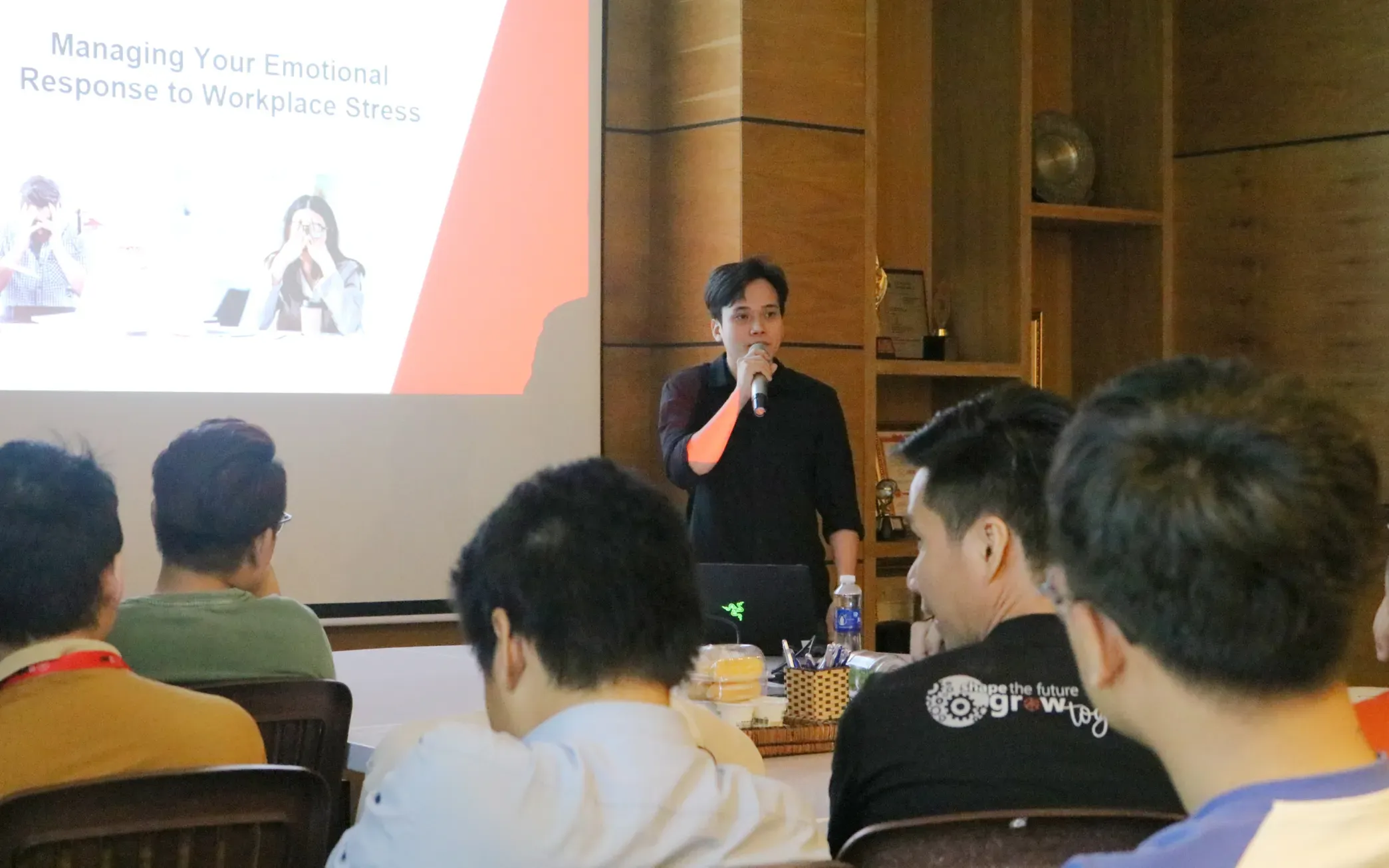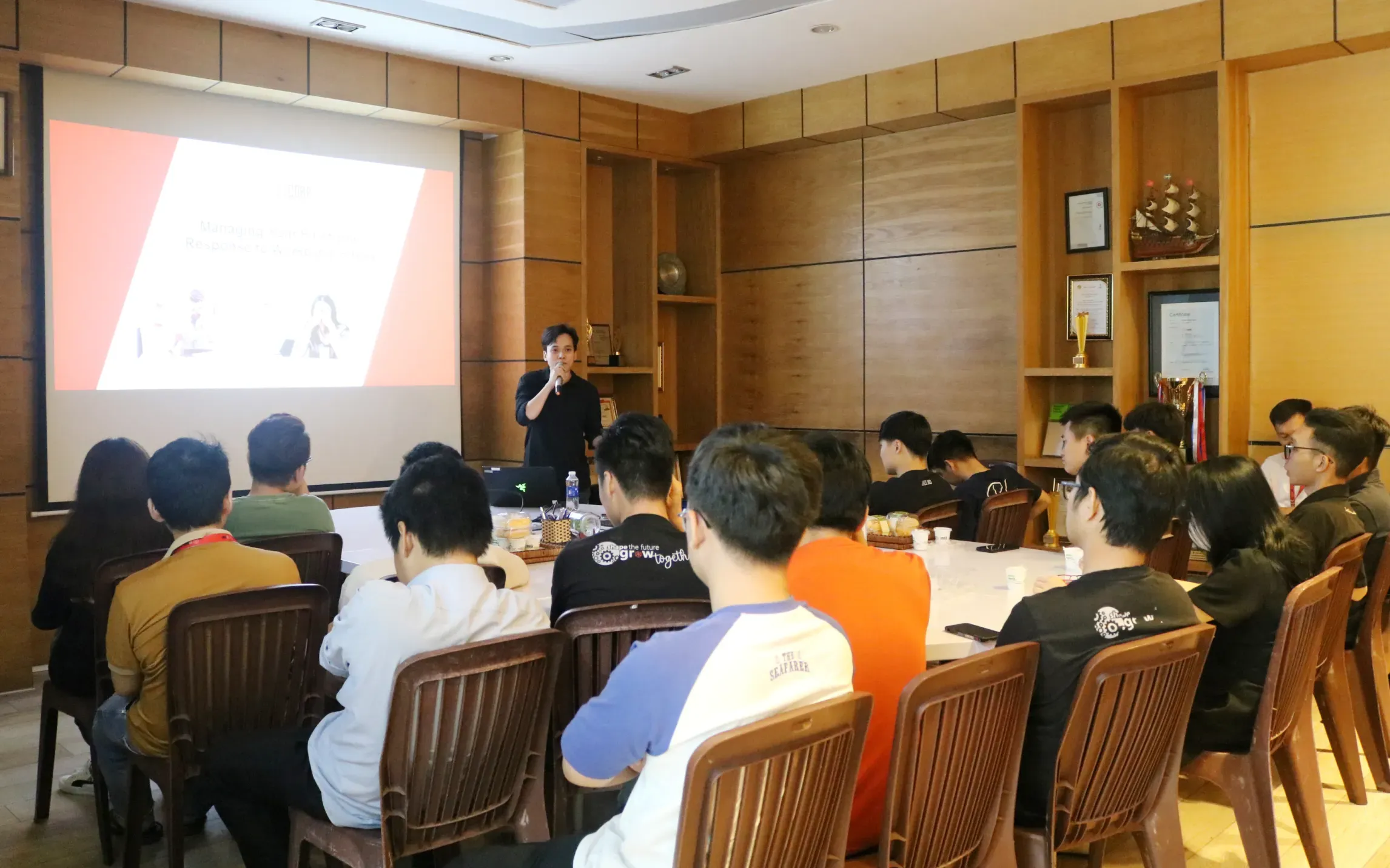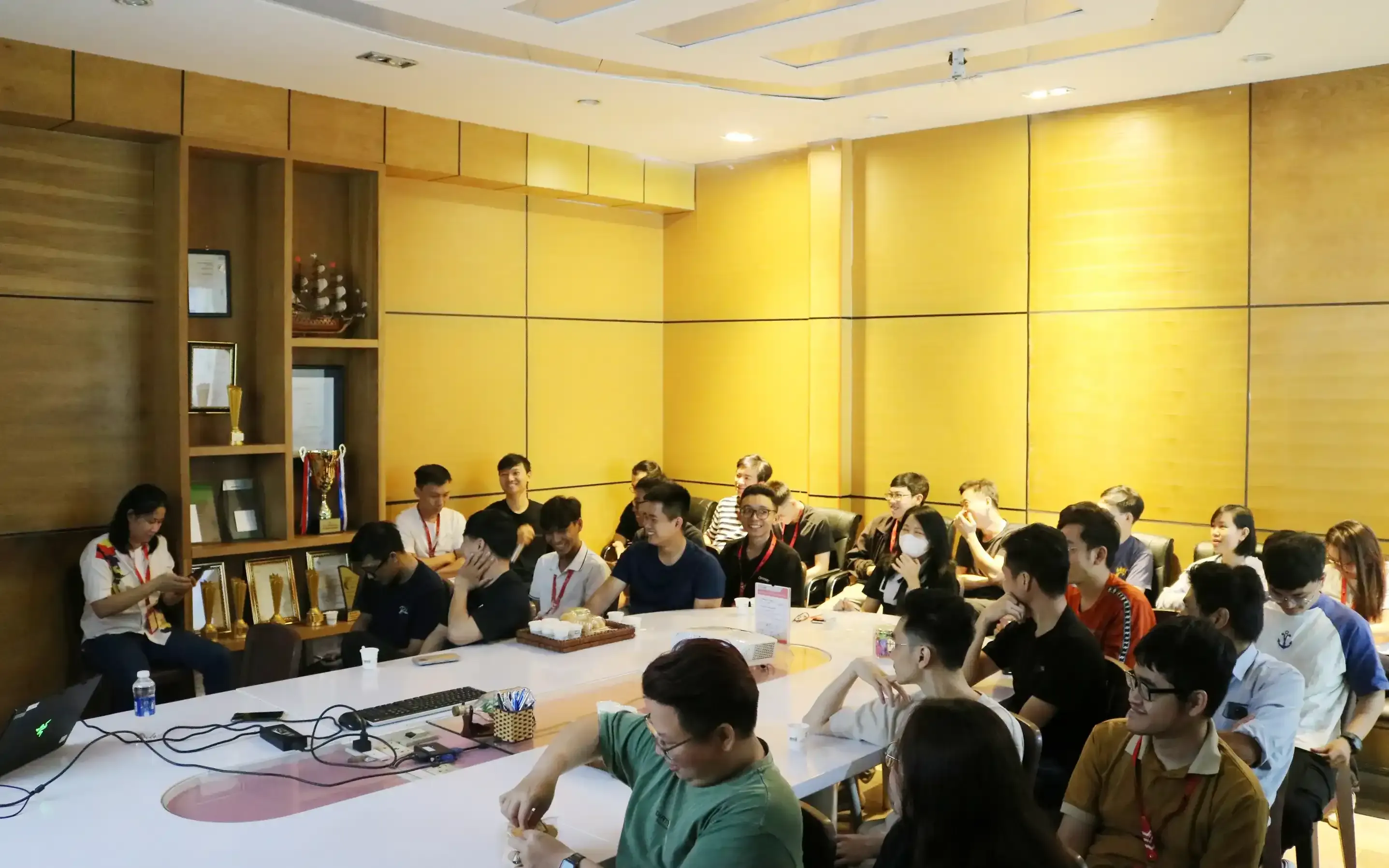Managing Emotional Response

News
Table Of Content
Managing Your Emotional Response to Workplace Stress | S3Corp. Internal Training
On Friday, April 18, 2025, S3Corp. hosted an internal training session titled Managing Your Emotional Response to Workplace Stress. This session aimed to support employees in understanding how emotional attachment to work can impact well-being and performance. It emphasized methods to identify, regulate, and manage emotional responses in a high-paced professional environment.
18 Apr 2025
Managing Your Emotional Response to Workplace Stress
On Friday, April 18, 2025, S3Corp. hosted an internal training session titled Managing Your Emotional Response to Workplace Stress. This session aimed to support employees in understanding how emotional attachment to work can impact well-being and performance. It emphasized methods to identify, regulate, and manage emotional responses in a high-paced professional environment.
 This training session reflects the value of continuous learning at S3Corp.,
where growth is supported through knowledge-sharing and skill-building. It also
supports a culture where learning from workplace challenges helps teams grow
stronger and more focused.
This training session reflects the value of continuous learning at S3Corp.,
where growth is supported through knowledge-sharing and skill-building. It also
supports a culture where learning from workplace challenges helps teams grow
stronger and more focused.
Understanding Emotional Attachment at Work
A central discussion point focused on how deeply employees connect emotionally with their work. The trainer guided participants in reflecting on personal experiences of reacting emotionally in various work situations. When individuals tie emotions too closely to their tasks, feedback, or outcomes, they may experience unnecessary pressure, frustration, or even burnout. The session helped participants recognize that while it is healthy to care about their work, unchecked emotional involvement can blur judgment and affect professional relationships.
 Participants learned to ask themselves questions such as: "Do I define
myself through my job outcomes?" and "Do I take every challenge as a
personal failure?" These questions serve as simple internal checks to help
regulate emotional overattachment. The session encouraged objective evaluation
of work situations rather than emotional absorption.
Participants learned to ask themselves questions such as: "Do I define
myself through my job outcomes?" and "Do I take every challenge as a
personal failure?" These questions serve as simple internal checks to help
regulate emotional overattachment. The session encouraged objective evaluation
of work situations rather than emotional absorption.
Drawing a Line Between Self-Worth and Work
Another key part of the training was separating personal value from professional results. Often, people link their self-worth directly with job achievements. When things go well, they feel confident. When things go wrong, they feel inadequate. The session addressed how this mindset increases stress and weakens emotional resilience.
The trainer introduced simple mental frameworks to help employees keep perspective. Attendees discussed how to recognize achievements without letting them define their identity. Likewise, failures were re-framed as opportunities to learn without internalizing blame. Maintaining this separation builds long-term emotional balance and sustains motivation through both success and failure.
The session reminded participants that self-worth is based on values, consistency, and integrity—not solely performance. By shifting this mindset, individuals can approach challenges with calmness and clarity.
Taking Work Less Personally
A final focus area was learning how to respond rather than react to workplace situations. This means understanding that not everything that happens at work is personal. Delays, disagreements, and critical feedback are part of the process—not personal attacks.
The session used practical examples to show how taking things personally can lead to overreaction, resentment, or withdrawal. Employees were encouraged to identify their emotional triggers and learn how to pause before reacting. Simple breathing techniques, perspective-shifting questions, and grounding exercises were introduced. These tools allow individuals to reframe workplace conflicts and maintain a professional mindset.
Taking work less personally creates a buffer between stimulus and response. This space allows for thoughtful action rather than emotional reaction, which is essential in team-based environments. It also leads to better communication, reduced conflict, and more productive collaboration.
Shared Reflection and Group Participation
The session was interactive, with employees sharing their personal strategies and emotional triggers. This open discussion fostered mutual understanding and allowed for collective learning. While each participant brought a different experience, common themes emerged: pressure to perform, miscommunication, and personal pride were frequently mentioned as sources of stress.
 The trainer highlighted how acknowledging these emotional responses openly
can help normalize them and reduce internal shame. When employees feel safe to
reflect and express emotions in a structured environment, they are more likely
to apply what they learn.
The trainer highlighted how acknowledging these emotional responses openly
can help normalize them and reduce internal shame. When employees feel safe to
reflect and express emotions in a structured environment, they are more likely
to apply what they learn.
The Importance of Emotional Regulation
Participants left with a stronger understanding that emotional regulation is not about suppressing emotions. Instead, it is about understanding them, creating space between feeling and reaction, and choosing thoughtful responses. Emotional regulation is a skill that can be practiced daily. Over time, it leads to greater workplace satisfaction, better problem-solving, and a stronger ability to adapt.
This training emphasized that emotional awareness and management are as important as technical skills. In a collaborative work environment like S3Corp., emotional intelligence directly affects teamwork and delivery quality.
S3Corp. and the Culture of Continuous Learning
The success of the Managing Your Emotional Response to Workplace Stress session underlines S3Corp.’s commitment to continuous learning. By investing in soft skills like emotional awareness or presentation skill, S3Corp. supports the professional and personal development of its teams.
Training programs like this provide practical value while promoting a culture of growth. Employees are encouraged to reflect, share, and improve together. This approach strengthens the organization as a whole and prepares teams to face challenges with skill and composure.
This session is one of many designed to equip employees with the knowledge they need to stay mentally strong and emotionally prepared in a demanding work environment. At S3Corp., learning is not a one-time event. It is a steady practice that helps every team member grow in clarity, purpose, and performance.



_1746790910898.webp&w=384&q=75)
_1746790956049.webp&w=384&q=75)
_1746790970871.webp&w=384&q=75)
